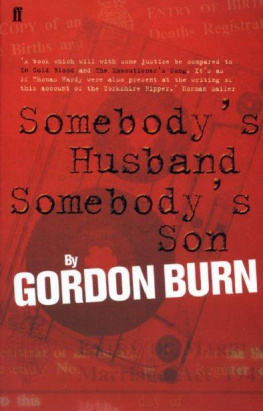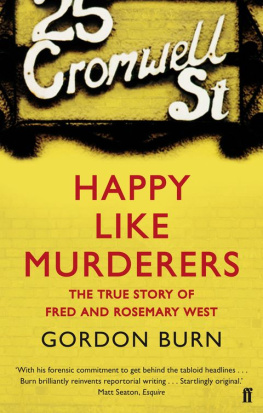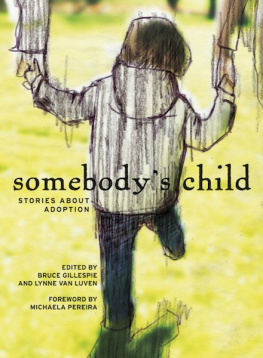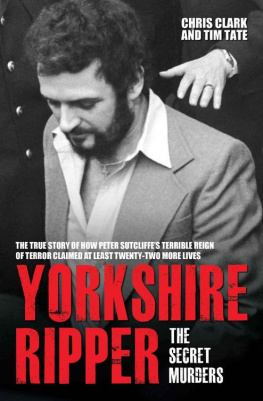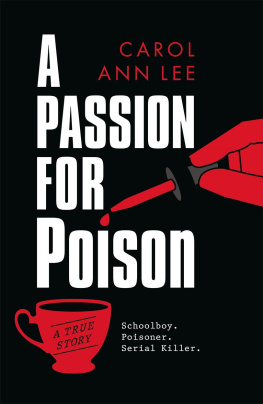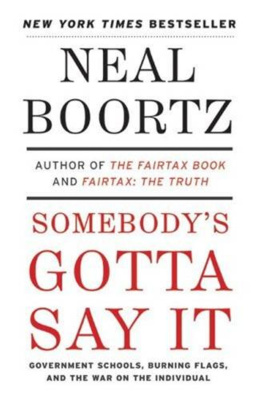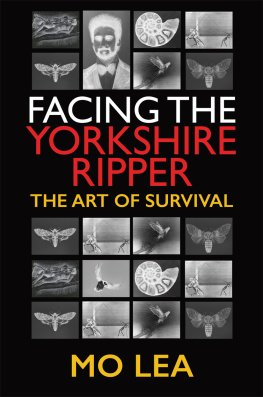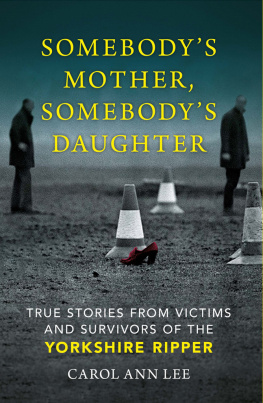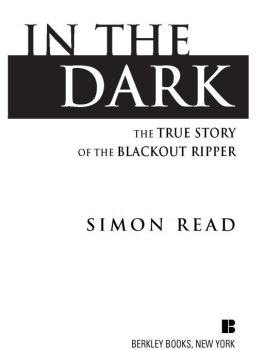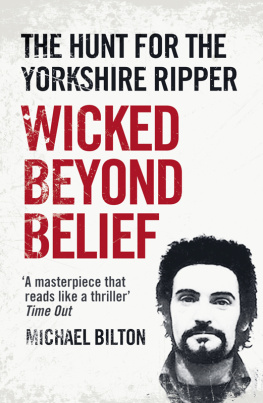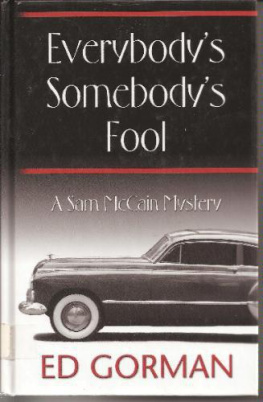Gordon Burn - Somebodys Husband, Somebodys Son: The Story of the Yorkshire Ripper
Here you can read online Gordon Burn - Somebodys Husband, Somebodys Son: The Story of the Yorkshire Ripper full text of the book (entire story) in english for free. Download pdf and epub, get meaning, cover and reviews about this ebook. year: 2004, publisher: Faber & Faber, genre: Non-fiction. Description of the work, (preface) as well as reviews are available. Best literature library LitArk.com created for fans of good reading and offers a wide selection of genres:
Romance novel
Science fiction
Adventure
Detective
Science
History
Home and family
Prose
Art
Politics
Computer
Non-fiction
Religion
Business
Children
Humor
Choose a favorite category and find really read worthwhile books. Enjoy immersion in the world of imagination, feel the emotions of the characters or learn something new for yourself, make an fascinating discovery.
- Book:Somebodys Husband, Somebodys Son: The Story of the Yorkshire Ripper
- Author:
- Publisher:Faber & Faber
- Genre:
- Year:2004
- Rating:4 / 5
- Favourites:Add to favourites
- Your mark:
- 80
- 1
- 2
- 3
- 4
- 5
Somebodys Husband, Somebodys Son: The Story of the Yorkshire Ripper: summary, description and annotation
We offer to read an annotation, description, summary or preface (depends on what the author of the book "Somebodys Husband, Somebodys Son: The Story of the Yorkshire Ripper" wrote himself). If you haven't found the necessary information about the book — write in the comments, we will try to find it.
Somebodys Husband, Somebodys Son: The Story of the Yorkshire Ripper — read online for free the complete book (whole text) full work
Below is the text of the book, divided by pages. System saving the place of the last page read, allows you to conveniently read the book "Somebodys Husband, Somebodys Son: The Story of the Yorkshire Ripper" online for free, without having to search again every time where you left off. Put a bookmark, and you can go to the page where you finished reading at any time.
Font size:
Interval:
Bookmark:
GORDON BURN
The Story of Peter Sutcliffe

To my parents
and the power to light the room came from another country, well to the north, where snow had already fallen
John Cheever, Bullet Park
PART ONE
Although less than six miles along the Aire valley from Bradford, the enduringly Victorian Worstedopolis whose dormitory it has increasingly become, Bingley is in many ways a country town, distrustful of, and often hostile to, what are all too easily interpreted as slick city ways. It is a conservative community, tolerant of mild eccentricity but more given to shamming gaumless than to acts of flamboyance or outward display.
Travelling north to prepare a biography of her friend Charlotte Bront almost a century and a half ago, Mrs Gaskell, whose train would have called at Bingley en route to Keighley for Haworth, only a short distance down the line, was immediately struck by the sullen and suspicious demeanour of the people in such a new manufacturing place:
The remarkable degree of self-sufficiency they possess gives them an air of independence apt to repel a stranger Their accost is curt; their accent and tone of speach blunt and harsh a stranger can hardly ask a question without receiving some crusty reply if, indeed, he receive any at all. Sometimes the sour rudeness amounts to positive insult. Yet, if the foreigner takes all this churlishness good-humouredly, or as a matter of course, and makes good any claim upon their latent kindliness and hospitality, they are faithful and generous, and thoroughly to be relied upon, Mrs Gaskell concluded in 1857, and little that has happened in the intervening years would cause her to radically revise that view.
Foreigners, in fact, which meant Bradfordians as well as southerners and those from further afield, were probably a less rare occurrence in Bingley in the mid-nineteenth century, when the railway and the canal were both bustling thoroughfares, than they have become today.
Shoppers and commuters are the only passengers likely to alight these days at Bingley station; and the holidaymakers who are the only cargo that the LeedsLiverpool canal now carries linger just long enough at the top of the Five Rise Lock overlooking the town to bemoan the unsightly concrete bunker erected by the Bradford and Bingley Building Society, and the Damart sign defacing the handsome chimney of the former Bowling Green Mills, before opening the throttle on their rented narrow-boats and gamely chugging on.
As recently as the early 1960s, however, when the Arts Council was still a warren of cobbled streets staggering down to the river, and the shopping precinct was still the site of the Myrtle cinema, Bingley, because of its advantaged position, was regularly choked with visitors from the surrounding towns, come to seek a breath of fresh air.
From Main Street, once part of the principal road from Bradford to Lancashire and the North, Bingley very quickly climbs up the steep sides of the valley, until the blackened stone of the semi-detached villas and Victorian terraces on the gentler slopes is overpowered by the paler brick of the post-war estates which provide the physical link between the heart of the old town and the scattered hamlets and villages high up on the moors edge.
It was to places like Gilstead and Eldwick that the hikers and bikers would come on August Bank Holiday Mondays and at Whitsuntide, toiling up the hills to the towns outer boundary in their hundreds, and then on, past High Eldwick, across Rombalds Moor to Ilkley, a sight as predictable as the rain that beat down on the Airedale Agricultural Society Show, held in Myrtle Park, every summer, and the Round Tables Moonlight Express which left Bingley station for Morecambe illuminations at 7.01 p.m. on the first Friday of every September.
These and other seasonal certainties the St Georges Day parade, the Childrens Gala, progging for Plot Night (Guy Fawkes), the Sunshine Christmas Club loaned a steadying rhythm to the Bingley year which in its turn has proved a reliable ballast against unwanted always referred to locally as unnecessary change.
John Sutcliffe has benefited all his life from the stability and sense of continuity that a small, semi-rural community like Bingley provides, and he has always endeavoured in his own way to guarantee it for the future.
On 11 November 1960, for instance, Mr Sutcliffe, a good-looking man, well-known locally for his achievements on the cricket and football fields, was a featured soloist when Bingley Musical Union, the towns male voice choir, performed with Hammond Sauceworks Band in the Princess Hall. Highlights of the evening, as that weeks Bingley Guardian duly recorded, were The Lord Is My Light (27th Psalm); In the Gloaming; selections from South Pacific ; Comrades in Arms; Plantation Songs; Land of Hope and Glory; and Abide with Me. A collection taken for Bingley Blind Peoples Association and Bingley Childrens Gala raised 20 1os.
Fifteen years on, the setting was different the main hall of the recently completed Bingley Arts Centre. But on the evening of Sunday, 7 March 1975, Mr Sutcliffe was again one of the soloists when the Musical Union again appeared with Hammond Sauceworks Band, performing by and large the same programme, and was prominent in the photograph that accompanied the Bingley Guardian s notice hailing it as without doubt one of the most successful combinations of sounds to which music lovers in the Aire valley have ever been treated.
It was around this time, however, that dark rumblings started to be heard about the unlikelihood of the Musical Union surviving beyond its centenary, then only fifteen years in the future: young men were no longer following their fathers into the choir as the present members had followed their fathers before them; young men didnt want to spend their Monday nights in an underheated room rehearsing Love Divine and Some Enchanted Evening; life was full of too many other distractions.
*
Peter Sutcliffe was third-generation Bingley, a chain that he would finally break himself by moving out to Bradford after he was married. His greatgrandfather, John Willie Sutcliffe, an imposing presence, head of the accounts department at Bradford Co-operative Society, had made the move in the opposite direction with his young wife in the 1890s; and once settled in Eldwick, then little more than a scattering of grey stone terraces easily mistaken from a distance as merely a hilly outcrop of the local millstone grit, had quickly established himself as something of a figure in the community.
J. W. Sutcliffes uncle was already installed as church-warden at St Lawrence C. of E., Eldwick; his wife became a stalwart of the church Ladies Committee and it seemed natural that, when the time came for their first grandchild to be born, John Sutcliffe would be born in the large, plain house with a view of the moors that had seen his own father grow up.
A gradual descent down the side of the valley towards the centre of Bingley and a lifetime in manual labour have left John Sutcliffe full of nostalgia for both the scenery of his childhood and the exalted position enjoyed by his grandfather.
As a child hed ride the tram into Bradford with his grandmother sometimes, and there the two of them would marvel at the sight of his namesake, big John Willie Sutcliffe, at work. He must have had a staff of about twenty girls in his office. It seemed to stretch as far as the eye could see, and there were all these desks all the way down with girls scribbling away at them. And me grandfathers desk was at the top of the office, high up, facing them all. I met a man who worked for Bradford Co-op, many, many years after me grandfather had died, who told me they used to tremble in their boots when they saw him coming. He said he were a proper tartar.
Font size:
Interval:
Bookmark:
Similar books «Somebodys Husband, Somebodys Son: The Story of the Yorkshire Ripper»
Look at similar books to Somebodys Husband, Somebodys Son: The Story of the Yorkshire Ripper. We have selected literature similar in name and meaning in the hope of providing readers with more options to find new, interesting, not yet read works.
Discussion, reviews of the book Somebodys Husband, Somebodys Son: The Story of the Yorkshire Ripper and just readers' own opinions. Leave your comments, write what you think about the work, its meaning or the main characters. Specify what exactly you liked and what you didn't like, and why you think so.

